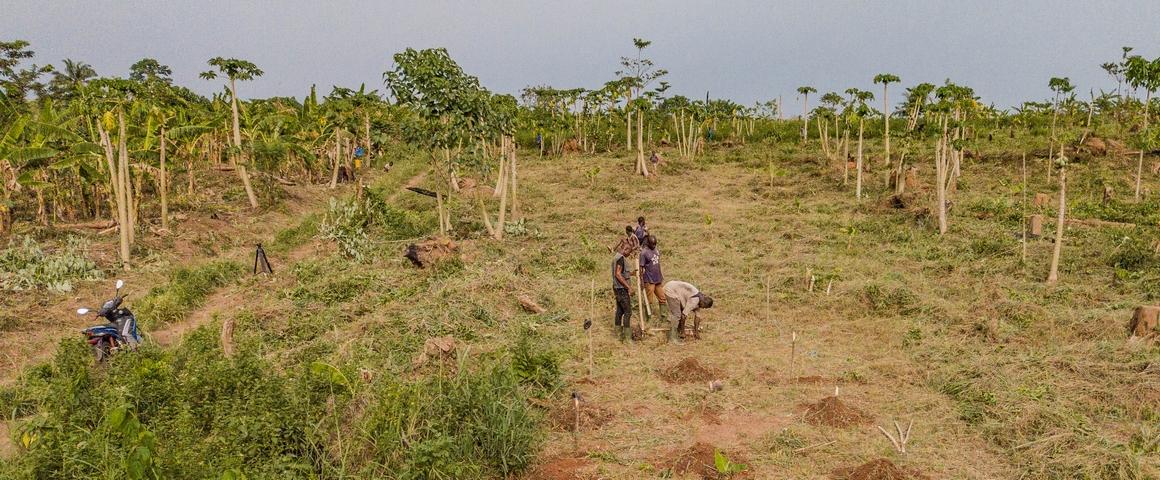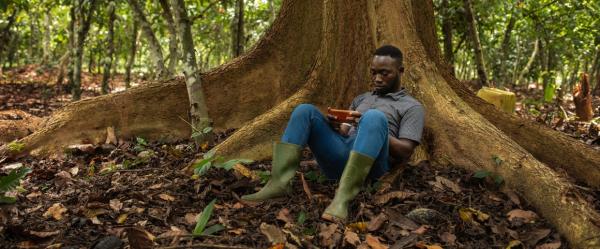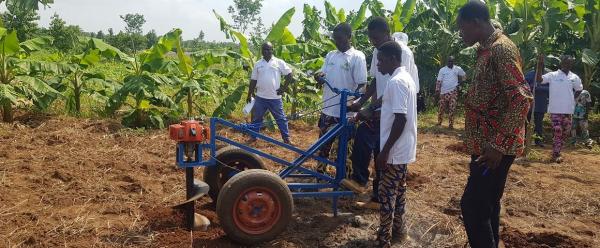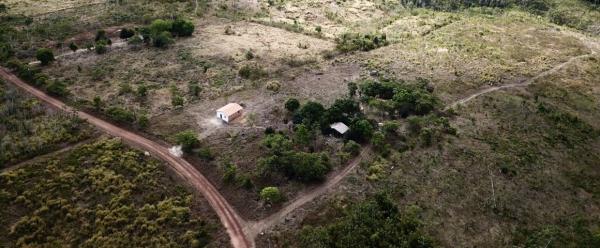Call to action 25 November 2025
- Home
- CIRAD news
- News
- For sustainable soils in West Africa
Soils are the cornerstone of good ecosystem functioning: lessons from Ivory Coast

Field study on soil health in the Téné Classified Forest, Ivory Coast © CIRAD
"Soils were long seen as a simple support to which it was easy to add certain things. A bit of fertilizer to allow farming, for instance. In fact, soils are not just a nutrient reservoir, and their overall health is what guarantees the efficient functioning of a whole range of ecosystem services that are vital to human activities."
Bruno Hérault is a tropical forest specialist with CIRAD. In May 2023 in Abidjan, he took part in the International Seminar on the Preservation and Restoration of Forest Soils in West Africa, organized by the Ministry of State and Ministry of Agriculture and Rural Development in Ivory Coast. The event was intended to foster dialogue at the interface between science, policymaking and agriculture, to put the question of soils at the core of the political agenda. The talks gave rise to a report making ten practical recommendations. They include speeding up the agroecological transition and strengthening dialogue between farmers, scientists and policymakers.
With its partners in the Terri4Sol project, CIRAD was behind the seminar, funded by the Fonds Français pour l’Environnement Mondial (FFEM). Many other institutions provided financial and scientific support for the event, including the Ministry of State and Ministry of Agriculture and Rural Development in Ivory Coast, Nangui Abroguoa University in Abidjan, the École Supérieure d'Agronomie (ESA) in Yamoussoukro, and IRD.
Terri4sol aims to promote sustainable post-forest landscape management practices in Ivory Coast, making use of the role of soils in good ecosystem functioning. Both the project and the seminar come under the umbrella of the "4 per 1000" initiative: soils for food security and climate, launched in 2015 at COP21. "4 per 1000" aims to federate all the public and private organizations working to ensure recognition of the importance of soils and their health in food security and the fight against climate change.
Accelerating the transition to sustainable farming practices
The recommendations made all point to the urgent need to transform the agricultural sector. Soil quality, on which crucial ecosystem services such as carbon storage depend, is under threat of pollution by chemical inputs. As for deforestation, it is accelerating soil degradation in areas that have already been substantially affected by climate change.
In response to those challenges, and with the aim of guaranteeing sufficient agricultural production to ensure the region's food security, several possible solutions were mentioned. On the one hand, agroecological practices can improve productivity while preserving biodiversity and soil health. To give just one example, projects to co-design cocoa agroforestry projects are under way in Ivory Coast, such as Cocoa4Future. On the other, providing smallholders and farmers' organizations serves to reward virtuous practices, thanks to certification or better access to markets.
"We urgently need to set up crops that 'last'", Bruno Hérault stresses. "Historically, once soils were exhausted, farmers moved on to clear forest areas to plant crops elsewhere. However, the land available is not unlimited, and appropriate farming practices are the only way of managing long-term soil fertility."
Boosting "science-policy" dialogue
That agricultural transition can only be achieved by establishing quality dialogue between farmers, scientists and policymakers, on various levels. Research has a major role to play in developing new ways of assessing soil health, in terms of both carbon storage and degradation indicators.
The discussions at the seminar shone the spotlight on science-policy dialogue as a collective learning process, and on the need for research to take greater account of political considerations. "It is vitally important to explore, clarify and take account of political factors in scientific research", Carolina Milhorance, political science researcher with CIRAD and co-organizer of the seminar, confirms. "This means greater pluralism and an interdisciplinary approach to overcome the limitations imposed by over-directive, research that is distant from reality. researchers must play an active role in this collaboration process, by helping to pinpoint the public issues and build solutions."
Within the framework of the Terri4Sol project, Ivorian academics are working to make the authorities more aware of the issues surrounding soil health. It is vital to bring policymakers onboard in order to draft policies aimed at fighting deforestation and supporting sustainable farming practices.



























